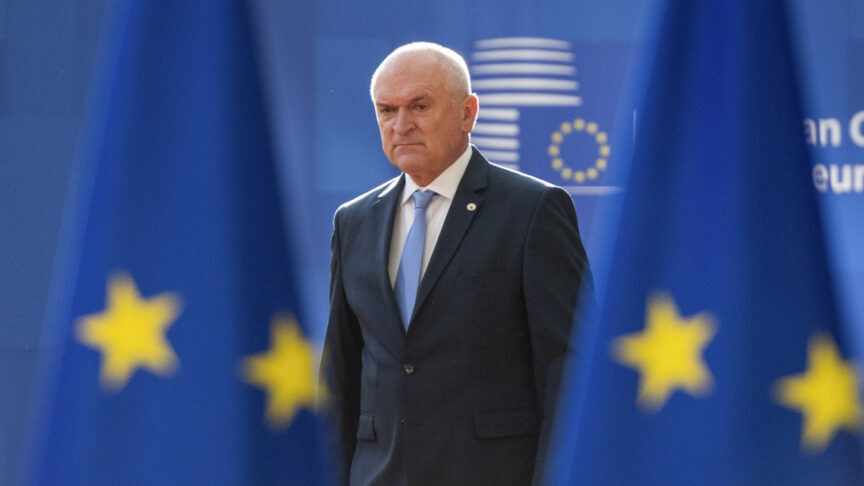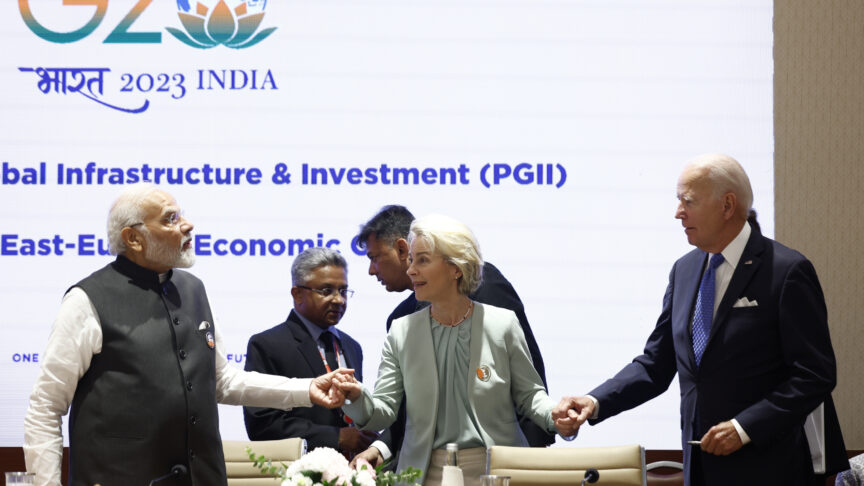Mother of all problems: The return of crisis manager Merkel
German decision-makers must now bear in mind not only their country’s well-being but also that of the entire EU.
Not long ago, policy wonks in Berlin were convinced that the greatest favour Angela Merkel could do her country would be to immediately announce her departure and pave the way for one of her aspiring successors. Now, many Germans hope that Merkel will continue to lead the fight against the coronavirus from home: it was announced on 22 March that she would self-isolate after coming into contact with a person who had tested positive for the virus. Thus, shortly before the end of her last term, the lame-duck chancellor has reprised her role as Germany’s most experienced crisis manager – a role she must now scale up to help steer the entire European Union through this unprecedented pandemic.
In more than 14 years as chancellor, Merkel has become an expert in guiding Germany through periods of intense stress and enormous challenges. After the eurozone crisis, the Ukraine crisis, and the migration crisis, the coronavirus presents perhaps her biggest test yet. While she was missing in action initially, leaving the field largely to Health Minister Jens Spahn and the minister-presidents of the Länder, “Mutti” signalled that she was back in the driver’s seat. Although the Länder still decide independently on school closures and curfews, it is Merkel who is the spider in the web, bringing coherence and focus to the diverse strands of the crisis response.
For the first time (aside from her obligatory new year’s addresses), she directly addressed the citizens of Germany in a prime time televised speech. Unlike in previous crises, when she had been accused of lacking empathy and communication skills, she was keen to make the federal government’s measures transparent and to ask for the people’s support. She explained the severity of the situation in no uncertain terms, but also succeeded in conveying security, stability, and trust. At times uncharacteristically compassionate and emotional, she appealed to the Germans’ sense of community: “no one is expendable. Everyone counts.”
The race to succeed her, in full swing just moments ago, has been completely side-lined by the coronavirus. And it is unclear which candidate the evolving dynamics will favour in the coming weeks. Markus Söder – who, as the prudent minister president of Bavaria, is emerging as a talented crisis manager in his own right – might be tempted to use his new visibility and popularity to put himself forward as a future chancellor. At present, however, these issues merely simmer in the background.
The grand coalition between Merkel’s Christian Democratic Union (CDU) and the Social Democratic Party is also more united than at any point since the beginning of this legislative period. In light of what is likely to become the biggest economic recession in post-war Germany, the coalition – represented by Finance Minister Olaf Scholz – has promised to “do whatever it takes” to mitigate the economic fallout of the coronavirus. The government is even prepared to give up the “black zero”, its policy of balanced budgets and no new borrowing. The Greens and the Liberals are refraining from fundamental criticism of government policy. And the Alternative for Germany (AfD) has failed in its attempts to take advantage of the crisis by mobilising against an allegedly failed, unpopular government – at least for the time being. In recent polls, the AfD received the support of only 9-10 percent of voters, while the CDU climbed to more than 30 percent. Germans are closing ranks.
Germany will need this unity – not only to master the coronavirus crisis, but also to deal with its repercussions for Europe. Compared to other European states, Germany is well prepared to weather the crisis. It has one of the best healthcare systems in the world, with a good number of intensive care beds and ventilators. Economically, the federal government, the Länder, municipalities, and social security funds have a whopping €200 billion in reserve. But not all member states of the EU are as well-positioned or have Germany’s financial capacity.
Berlin has special responsibility for, and an existential interest in, preserving the European project.
During the eurozone and refugee crises, the German government was widely accused of pushing through its own agenda against the wishes and interests of other EU member states. Germany emerged from these crises relatively unscathed, while some of its European neighbours were left with deep scars. As such, German decision-makers must now bear in mind not only their country’s well-being but also that of the entire EU. After all, this is not just a national crisis, but one that has the potential to shake the bloc to its foundations. Berlin has special responsibility for, and an existential interest in, preserving the European project.
The fact that Merkel, in her televised address, failed to mention the struggles of other Europeans – some of whom are suffering ever greater tragedy with each passing day – was not a good look to Germany’s friends and partners. Merkel might have directed her speech at her fellow Germans first and foremost, but other Europeans listen when the chancellor speaks. It is also not to Berlin’s credit that it initially banned exports of protective gear, such as face masks and ventilators, to its EU partners. Nonetheless, the government corrected this misstep following the intervention of the European Commission. And the German states of Rhineland-Palatinate, Baden-Württemberg, and Saarland have now agreed to accept coronavirus patients from the French region of Alsace.
Europe will need strong German leadership in the coming months. The German EU Council presidency, which begins on 1 July, provides another opportunity for this. Berlin cannot afford to fall back into its pre-coronavirus paralysis once the pandemic begins to abate. The EU will need to put enormous energy into rebuilding the European economy and regaining competitiveness.
Berlin should lead the debate on developing an environmentally sustainable stimulus package for Europe, lest the Commission’s European Green Deal become collateral damage in the crisis. The German government should work towards an EU budget that reflects the scope and severity of the current situation – firstly, by abandoning its demand that the budget be limited to 1 percent of the bloc’s GDP. And, as one of the countries traditionally most resistant to a common health policy, Germany should make an effort to develop a comprehensive European response to outbreaks of infectious diseases, thereby building up the EU’s resilience against the next pandemic. Lastly, this is also about Merkel’s European legacy. She can either step down as a lame-duck chancellor or retire as the leader who guided Europe out of its most serious crisis in decades.
The European Council on Foreign Relations does not take collective positions. ECFR publications only represent the views of their individual authors.


